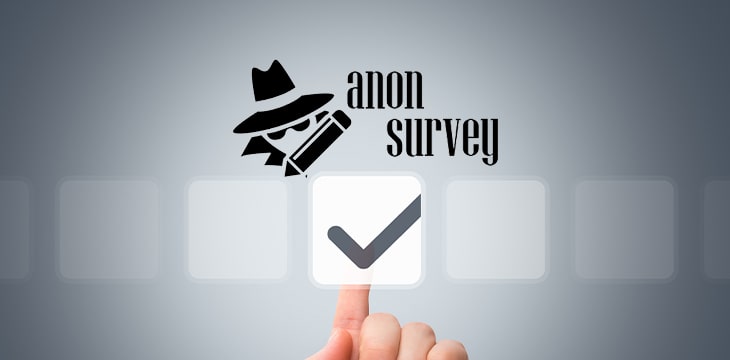|
Getting your Trinity Audio player ready...
|
E-voting on blockchain apps got a step closer with the “soft launch” of AnonSurvey. Creator Eli Afram said the tool would initially be useful for businesses and market researchers, and could one day be useful to governments.
What makes AnonSurvey different from existing voting or survey form software is the idea of tokenized responses. The creator of a form, can issue a pre-defined number of response tokens to ensure only those eligible to participate in the questionnaire can submit. The responses are then recorded on the blockchain, maintaining individual privacy while producing results that can be publicly verified and audited at any date in the future.
“Transparency is super important!” Afram said.
The AnonSurvey online app is available now for interested users to try out, if they contact Afram and request account access. He said he soft-launched the app to get people to start using it, and to use the opportunity so that a smaller number of early-adopter testers could help identify and iron out issues.
“I originally got the idea when one of our local government municipalities in Australia was hunting for such a tool where they could survey their own constituents, but maintain the privacy of their citizens. There wasn’t as much as you’d think out there,” he said.
You can view a short demonstration of AnonSurvey’s interface features here:
The app itself is not unusual to anyone who has used such software for surveys. The familiar design is intentional. The drag-and-drop interface allows survey makers to include a number of common questionnaire elements to build a unique form, including buttons, check boxes, drop-down lists, text fields, and more.
Once completed, responses can be published to the blockchain and (optionally) encrypted if an extra layer of privacy is required. A one-click option will chart statistical results on graphs and create a word cloud for text responses, while another option can export the results in CSV format.
No mention of Bitcoin, on purpose
Notably, although AnonSurvey uses the BSV blockchain as its backend, it does not mention the word “Bitcoin” anywhere and it’s not necessary to own any BSV or have any kind of blockchain wallet to create a survey or participate in one. Payment options (necessary to create response tokens) are PayPal and credit/debit card only for now, something Afram said was deliberate to make the system more accessible to all.
US$1 will buy you 10 response tokens, or you can buy in discounted bulk (e.g., 100,000 tokens for $1,000). There are several options in between those, and a custom pricing option. The AnonSurvey website says at least 130 clients have used the app already, with a 100% satisfaction rate.
There’s no technological reason AnonSurvey couldn’t be used for e-voting in actual elections, although obviously several laws and official checks/balances would need to be in place before it could be used for that purpose. For now, Afram suggested other uses where results are less constitutionally significant, such as customer/employee satisfaction surveys, company board votes, opinion polls, or elections within clubs and other organizations.
AnonSurvey grew out of a project Afram has been developing for some time, originally called “b-vote.” Having tokenized and limited responses guarantees the responses come from legitimate users only and can be recorded on the blockchain, while keeping respondents’ real-world identities private.
BSV based surveying/polling/voting tool to help transparency.
Here is a short video showing you how anonSurvey looks and works. pic.twitter.com/pDRDI7jpCj— Eli Afram (@justicemate) September 28, 2021
The app can handle any size question and response survey and the style of the form is fully customizable by creators. AnonSurvey also has customer support to assist users in using the features to their best extent.
The world is still searching for the best and most secure e-voting solutions, allowing elections to be tallied and finalized with greater security and speed. While it’s probably going to be a long time before anyone using blockchain technology for electing government representatives in a democratic election, AnonSurvey provides a good example of how it could work, and will help to identify any issues that could affect such results when it comes time to consider these systems in the real world.
Watch: CoinGeek New York panel, A Better Internet Experience using Blockchain

 03-05-2026
03-05-2026 




